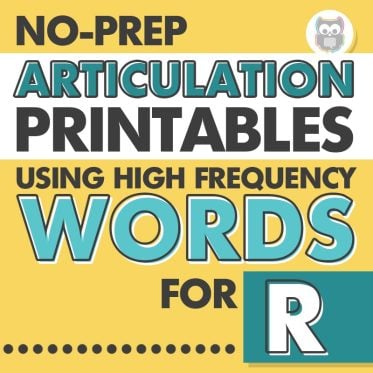In good ways and bad ways, social media has a direct impact on our mental health. I wanted to share some specific advice and ideas on how to deal with feelings of inadequacy from using social media platforms.
Does Social Media have any positive impacts on mental health?
I (like many other SLPs) have social media accounts on multiple platforms.
There are a lot of great things about social media! Posting online helps us connect and collaborate with one another. Have a good idea? Share it with the world!
We can encourage each other when we’re feeling down.
We can inspire one another when we’re not feeling creative.
Social media helps improve transparency about things like salaries, which will help us all to advocate for ourselves and improve working conditions for the whole profession.
Online posts can help us feel greater empathy. For example, there are some great social media accounts run by autistic and other neurodiverse individuals, who are kind enough to teach the rest of us more about acceptance. We can all do better to serve our students in an individualized, meaningful way.
And then there’s the bad…
While social media seemed really cool and awesome at first, there have been some negative consequences to our constant connectedness.
Strangely, social media can feel isolating. Suddenly your life is not as put together as everyone else’s life seems to be. Your therapy room isn’t perfectly organized, labelled, and filled with the newest, greatest toys and books. You ran out of money for color printing and didn’t have time to cut and laminate.
You’re overwhelmed by the vastness of our field and try to ease your imposter syndrome by scouring social media for the next great thing. You’re worried that you and your students are missing out on something great (FOMO!)
Worst of all, FOMO sends you back for more social media every time.
It can be a downward spiral.
How to use social media for good and not evil
Today, I wanted to share specific advice and ideas on how to deal with some of the feelings of inadequacy from these platforms.
It’s bound to happen but the good news is that there are several strategies you can use so that you can continue to use social media, but not feel so much jealousy or FOMO. ⠀⠀
Here’s my advice:⠀⠀
1. Get curious about WHY you’re feeling that way.⠀⠀
Why does the specific post bother you? What feelings does it bring up? Why does this feel like something you should be doing?⠀
2. Gratitude.⠀⠀
Pause and remind yourself what you’re grateful for from your own life. Start a gratitude practice that you do every day. Remind yourself what DO you have. Remind yourself that it’s okay to have different priorities.⠀⠀
3. Avoid, unfollow, mute, don’t stalk.⠀⠀
Sometimes, I make the problem worse by going down a rabbit hole and stalking accounts that make me jealous. ? This obviously makes everything worse so stop this vicious cycle!⠀⠀
4. Setup Downtime and App Limits!⠀
If you have an iPhone, it has these settings under “Screen Time” in your settings. You can block out certain apps during designated times or even set daily time limits for specific apps!
Android phones have Downtime settings where you can set limits on specific apps or websites.
There are also external apps, like Forest, that can help encourage you to set screen time limits.
5. Make the change.⠀⠀
Do what you need to do to make yourself feel better. Remind yourself that everyone’s life is mixed with good AND bad. EVERYONE. Make up a story about what things in their life you might not be seeing. Focus on self-care. Set goals that put you on the path towards creating the life you want. Start a gratitude journal. Do what you gotta do ?⠀⠀
Last, remind yourself that you don’t need fancy data sheets, perfectly laminated, themed materials, or the latest and greatest cute SLP thing to be a good SLP. ⠀⠀
Don’t let Instagram make you feel inadequate. ⠀⠀
I hope that helps to give you some ideas!! You got this! ?





















Leave a Comment